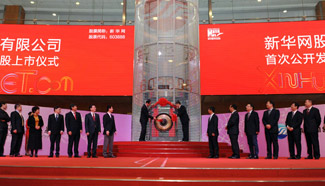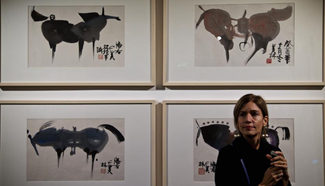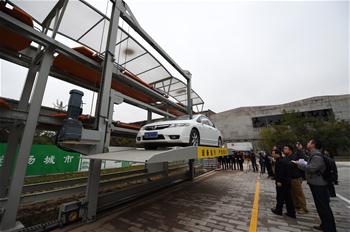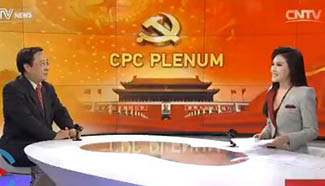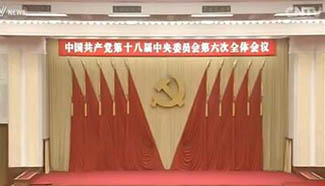by Yang Dingdu, Liu Wanli, Wang Chu
MOSUL/BEIJING, Oct. 28 (Xinhua) -- The government forces' winning major battles in Iraq and Syria may mark the downturn of the Islamic State (IS) and the rebels, but it will not automatically translate into peace in the war-torn region where powers continue to intervene and compete for influence, experts have said.
WINNING BATTLES
The armored Hummer stirred up dust that blocked the rear view, driving through the sandy roads of Iraq's Quwayr area, 15 km to the southeast of Mosul and the closest front line to the city.
Rockets fell randomly around, causing devastating blasts. These rockets, along with landmines and snipers, are among the tactics of IS militants desperate to hold onto the largest city in their control.
The Iraqi government forces are advancing faster than expected since they launched a major offensive on Oct. 17 to retake the country's second largest city, some 400 km north of the Iraqi capital of Baghdad. Being close to oil fields, Mosul is the economic hub of IS.
Government forces have advanced 30 km from the south pushing the front line to areas close to Mosul such as Quwayr. More tanks are crossing the Tigris River from further south to reinforce troops stationed in the newly-established headquarters in Qayyarah Town.
The resistance of a few thousand IS militants seems only to delay the inevitable in face of more than 30,000 government troops. Yin Gang, an analyst with the Chinese Academy of Social Sciences, expects the Iraqi government to regain control of Mosul by the end of the year.
In Syria, government forces are also having rebels encircled in Aleppo, cutting off their supply line. The siege of Aleppo was first imposed in July. It was broken by U.S.-backed rebels in August but was restored in early September.
POWER STRUGGLE
If government forces take back Aleppo, it would be an important strategic gain for Russia and a major failure of U.S. Syrian policies, Yin said.
The United States has been openly arming rebels in Aleppo since 2013. Russia has troops on the ground in Syria and assists government offensives with airstrikes.
Despite the gains made by the Syrian government and Russian troops, the rebels' strength has not been weakened much with the support and arms supply from the United States, Gong Zhenxi, an expert with Xinhua's Center for World Affairs Studies, said.
Moscow is aware of cases when Syrian militants, fighting near Aleppo, have obtained man-portable air-defense systems (MANPADS) manufactured in the United States, Russian Foreign Ministry's spokeswoman Maria Zakharova said Thursday.
"There are cases of U.S.-manufactured antitank weapon systems and MANPADS being handed over to the militants (in Aleppo)," Zakharova told a briefing.
Although the government forces, with the help of Russia, are gaining the upper hand, the battle of Aleppo is much more complicated and it won't come to an end in the foreseeable future, Yin said.
Regional powers are also involved. Iran, an Islamic Republic that sees itself as the guardian of Shiite Islam, supports the Iraqi and Syrian governments. Iranian Shiite militia are seen in both battlegrounds.
Turkey is trying to leverage rebels and militants in Syria and Iraq against Kurdish forces. Kurdish fighters play a key role in both battles but are considered a separatist threat by Turkey, Wu Bingbing, a professor with Peking University, said.
The battles also come at a sensitive time as the U.S. presidential election nears. Republican candidate Donald Trump has openly criticized the battle of Mosul as having been launched to boost his opponent Hillary Clinton's prospects.
The rampage of the IS was originally the result of outgoing U.S. President Barack Obama's ill-considered withdrawal of U.S. troops from Iraq. To liberate Mosul from the IS is a face-saving campaign for Obama, Yin said. "It can also help Hillary, heir of Obama's legacies."
While in Aleppo, where the U.S. stands to lose, the Obama administration will try to avoid a great failure and keep the status quo, at least until the election, he added. (Xinhua reporter Wu Zhongmin also contributed to the story.)

